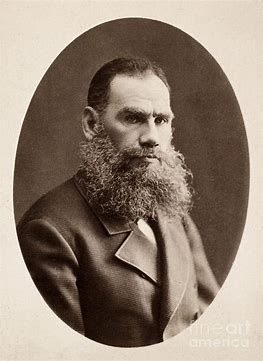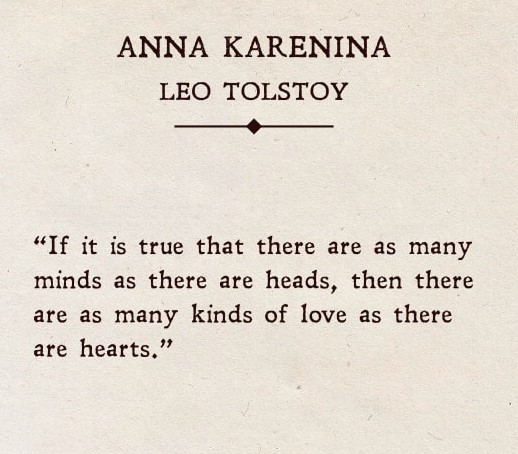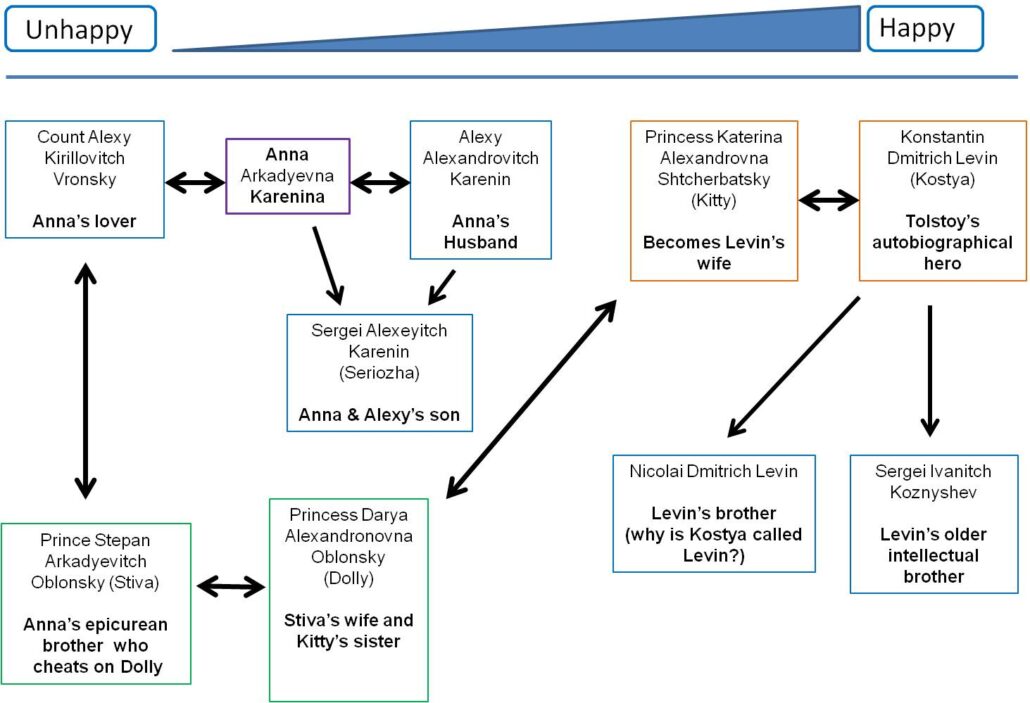Anna Karenina
Author: Leo Tolstoy
Genre: Classics

Leo Tolstoy, the famous writer of War & Peace and Anna Karenina, is generally regarded as one of the greatest authors of all time. Within the former Soviet Union, his books have sold 400 million copies. Gandhi and Martin Luther King regarded him as their inspiration on pursuing non-violence and truth. He was nominated for Nobel prize multiple times but, in one of the major controversies for the Swedish academy, never won a Nobel.

Tolstoy’s life were times of great change in Russia as the hitherto feudal, aristocratic society was being reformed by the emperor (later assassinated) who brought in emancipation of all serfs. There were many revolutions (1905, 1917, 1923) and riots and civil war all leading to the dissolution of Tsardom and the formation of a socialist republic. Tolstoy wrote realist fiction: a fictional story but which was rooted in the real political and social landscape of the era.
Anna Karenina is set up in the same period and is the story not just of Anna but of the Russian society of that time. Almost every international book list (Time, Guardian…) has rated it “one of the best novels ever written.”
Anna is a married aristocrat who falls in love with Count Vronsky and they pursue an illicit affair. Rebellious, the couple runs off but soon find themselves disillusioned. They come back only to be heavily spurned by the Russian society. In the end, Anna commits suicide by throwing herself in front of a train, in much the same way as a worker dies in the opening scene of the book. Towards the end, the book talks of how Russians were participating in the ill-fated Balkan war of Independence from the Ottoman Empire. Vronsky, in absence of any hope, goes there to fight and the reader is softly suggested he won’t come back. A steaming love affair ends in tragedy.
The book also introduces another character Levin, perhaps Tolstoy’s ideal man living with moral values, a worker landlord who converses with and learns from his peasants. Many chapters show how his character develops a deeper understanding of life.
In between, the novel covers various themes:
- Love and betrayal – Anna pursue her love, but in doing so betrays her husband and her son.
- Attraction and boredom – Infatuation between the lovers very soon dies off, leaving both detesting each other’s company, the same company for which they had sacrificed so much.
- Unhappiness – many characters get what they were ardently pursuing, but then start questioning whether they really are happy.
- Jealousy and Retribution – Anna later gets paranoid about Vronsky having an affair and makes his life miserable. Both consider suicide.
- Hypocrisy – Anna saves his brother’s marriage despite his infidelity and then ends up destroying her own.
- Religion – The other parallel story of Levin shows his simple, spiritual existence and his struggles with accepting the Christian faith.

Tolstoy, ever the idealist, does not preach but his stories illustrate his maxim: do unto others as you would have them do unto you. Tolstoy also seems to have treated his books as a vehicle to get out whatever he wanted to say on a variety of topics, including the meaning of life, religion, duty, rights of citizens and even farming techniques and local governments and elections.
The book begins with one of the most quoted sentences by Tolstoy: “happy families are all alike, every unhappy family is unhappy in its own way”. Ironically, Tolstoy was not very pleased with his own notes and said, “I loathe what I have written. The galleys of Anna Karenina… Everything in them is so rotten, and the whole thing should be rewritten—all that has been printed too—scrapped, and melted down, thrown away, renounced.” But the great novel, with ever enduring themes of attraction, infidelity, love, jealousy, rebelliousness, social hypocrisy, piety… continues to enthral.
Tolstoy has used inner monologues in the book which adds to the whole realist writing and to the book. The novel has two very different love stories – the heart breaking one of Anna and Vronsku and then the ‘normal’ love story through Levin and Kitty, the other couple.

Like most Russian novels, this is huge (1040 pages) and made even tougher by the need to remember so many names (much like War and Peace). A younger audience may find many of the norms anti-diluvian. Without any knowledge of the society of that time, it may be that much more difficult to appreciate the story.

Why should you read the book: Many readers agree that a novel by Tolstoy is not a work of art but a piece of life. Well, read this novel to know what kind of scope and power a novel can have. It abounds with people with varying struggles and convictions, and with presence as strong as the primary characters. This novel is as massive as the country of Russia. Another Russian author commented that if the world could write by itself, it would write like Tolstoy.
Goodreads Link- Anna Karenina by Leo Tolstoy | Goodreads

 This information will never be shared with third party
This information will never be shared with third party
Post A Comment
Want to join the discussion?Feel free to contribute!